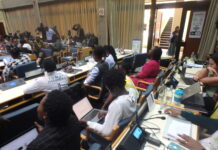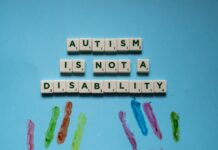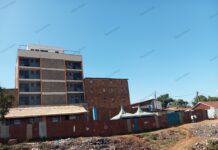By Sharon Kiburi
Nairobi, Kenya: The Covid-19 pandemic in Kenya has seen increased gender-based violence and rape rise to a great extent. It is evident in a report by the department of children in Machakos County with an estimated four thousand teenagers impregnated and unable to report to school. The President of the Republic of Kenya Uhuru Kenyatta, identified this as a significant predicament that his government will be fighting in his pledge at the G7- Summit in 2021.
“Numerous factors contribute to the rape, such as sexual deviancy, mental health, and self-esteem executer. The psychological outcomes associated with rape and gender-based violence trauma may include low self-esteem, guilt, shame, distrust of others which can affect the mental health of rape and gender-based violence survivors in society,” said Irene Tarago, a clinical Psychologist.
Further, Irene says rape causes Post Traumatic Stress Disorder (PTSD), which by itself has different treatment methods, for instance, eye Movement Desensitization Reprocessing Technique and Therapy
“Our society has come a long way in the fight against GBV and sexual assault cases; however, there is still a lot to be achieved, especially in handling GBV and rape survivors. These acts of violence can be stopped by sensitizing the public on the issue. Hopefully, more progress will be seen with time” explains Irene.

“My first sexual encounter was a manipulation by our house help. I am not quite sure how to name the type of violation that happened to me. I did not necessarily resist because I had been mentally manipulated. The perpetrator played with my psychology with the full knowledge of my weak state without using force,” Onyango Otieno, a professional trauma therapist, and a rape survivor divulged.
Moreover, Onyango says there are more than ten types of rape.
“To name but a few include Marital rape, Statutory Rape, Punitive Rape, Ceremonial Rape, Acquaintance rape, Prison Rape, War Rape, Rape by deception, Diminished capacity rape, Status Rape, Serial Rape, Custodial Rape, and many others” describes Onyango
“Structural trauma emanates from structural violence, how our social arrangements, governments, economies, religions, executors put individuals and populations in harm’s way,” said Otieno.
Structural trauma in our societies is rooted in various social arrangements including disparate access to health care, education, and housing and violence because it causes actual injury to people. The concept of structural violence links the social determinants of health like economic stability, neighborhood, education, access to food, the social structures that give rise to them, and the outcomes they produce.
Inspired to create a world where speaking up about one’s pain is a norm, not an exception, Onyango shared his story.
“I majorly dealt with my trauma by speaking about my pain, seeking therapy, and inviting others into my healing process,” said Onyango Otieno, trauma therapist, and rape survivor.
Ten years ago, the ordeal took place; Onyango is not keen on pursuing Justice, but he uses his experience to aid others in a society struggling with trauma.
“Previously before the healing, I engaged in compulsive sexual behavior and struggled to maintain healthy relationships, but that changed with time the more I became self-aware about the sexual and other traumas I was battling” he explains.

“Whether the media reflects society or society reflects the media is a battle we can’t simply measure; however, it’s very clear the conversations and stories about gender-based violence and rape need a deep dive. An issue that stands out from the Pan Africa Gender Talks, the rape culture and gender-based violence. Going beyond just having the conversation to examining the quality of the conversations,” says Media personality and a rape survivor, Adelle Onyango.
Adding “Understanding rape culture and how we eradicate the practices in society is crucial. Letting survivors deal with their healing and fighting the issues in society is a difficult task” observes Adelle.














